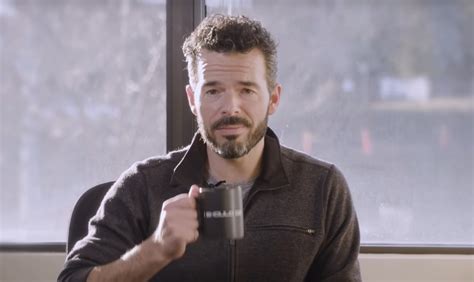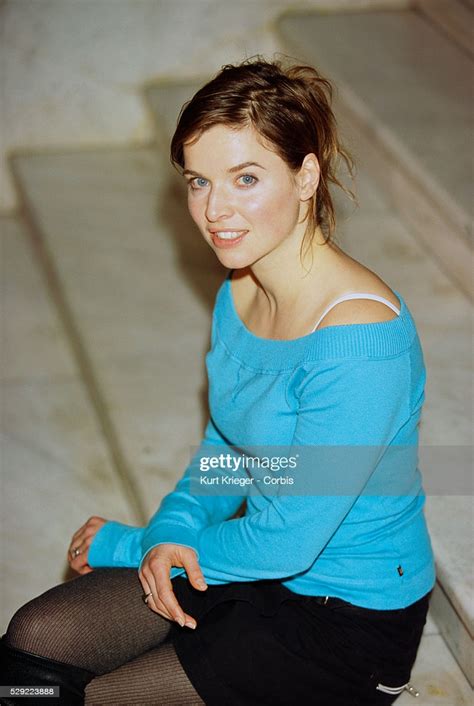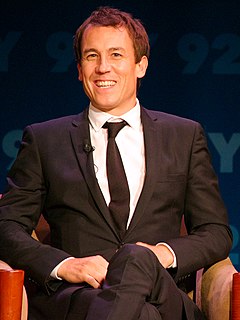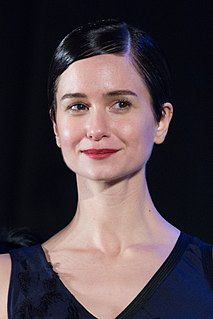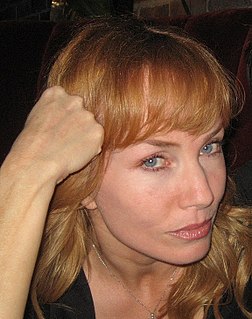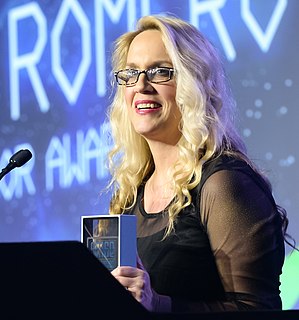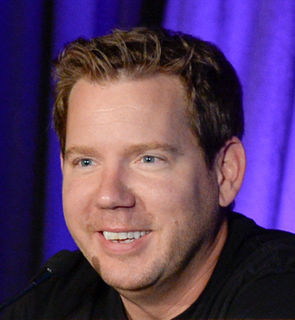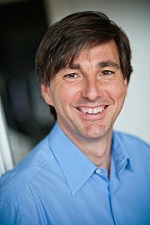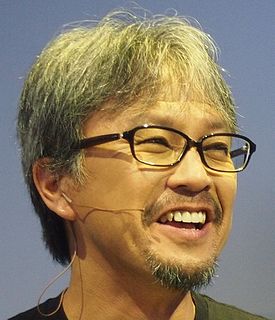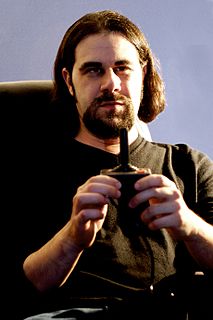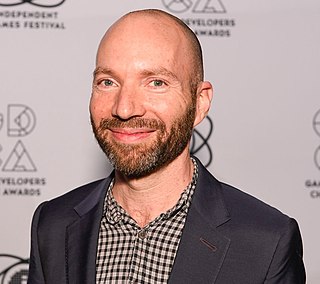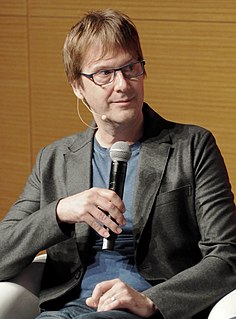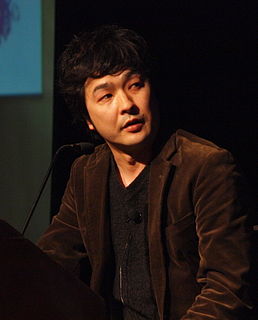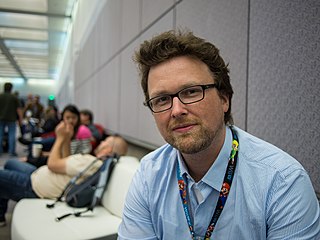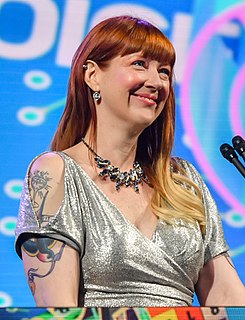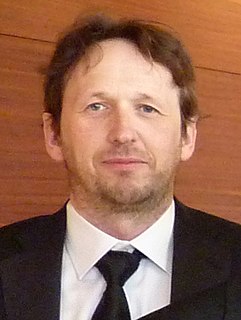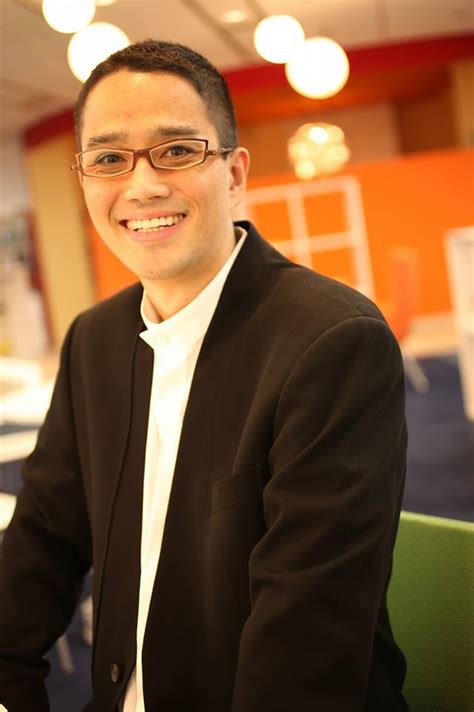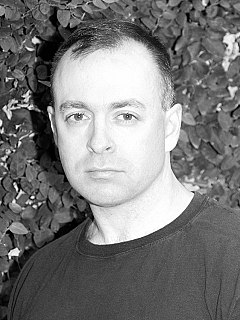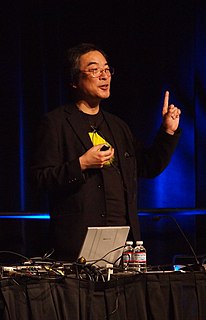A Quote by Casey Hudson
For people who are invested in these characters and the back-story of the
universe and everything, all of these things come to a resolution in
Mass Effect 3. And they are resolved in a way that's very different
based on what you would do in those situations.
Related Quotes
I think it's very valuable as an actor to throw yourself back into having that direct connection with an audience on-stage and work that muscle. It is a very different type of work and equally fascinating. I mean, I've very much in love with filmmaking because I really love the way you can tell stories with a camera and how music and everything contributes to the story in a very direct way. But I also think it's very valuable to come back to theatre, so if the right script came along I would love to come back to London and do some more.
I'm always tempted in the back of my mind to continue to write things in the Star Trek universe, in the novels or the comics, just because I don't get to play in that universe and I don't get to hang out with those characters any more. You spend hours upon hours of your life, day after day sitting in writers' rooms, talking about these people and these situations, and it becomes very real to you. They're friends of yours, in a lot of ways.
The Second Wave Society is industrial and based on mass production, mass distribution, mass consumption, mass education, mass media, mass recreation, mass entertainment, and weapons of mass destruction. You combine those things with standardization, centralization, concentration, and synchronization, and you wind up with a style of organization we call bureaucracy.
Every movie has three things you have to do - you have to have a compelling story that keeps people on the edge of their seats; you have to populate that story with memorable and appealing characters; and you have to put that story and those characters in a believable world. Those three things are so vitally important.
I think up to this point, it's been difficult to suggest a world where Batman and Superman and Wonder Woman and others could exist in the same universe. That was one of the things I really wanted to try and get at. Not to mention, the amazing opportunity to bring those characters and have those characters tell an important story, their own story, within the confines of a film.
A short story is confined to one mood, to which everything in the story pertains. Characters, setting, time, events, are all subject to the mood. And you can try more ephemeral, more fleeting things in a story - you can work more by suggestion - than in a novel. Less is resolved, more is suggested, perhaps.
The type of acting that I'm interested in, that I aspire to, is where I try and drag a lot of myself into whatever character it is. They can be very different types of characters, but at the heart of it, I always wanted to be a very, very believable and rooted in reality. One of the ways of doing that is to root it as much as you can in your own experiences and then tint those with different hues, different colors to give the different characters their way.
I had no intention of replacing Arnold [Schwarzenegger]. There were a few things that made me want to do the movie. They were the script which had a different direction to it, and it was a chance to do a very different Quaid. I didn't read the short story until I went to college.Reading the story had a different effect on me of how I pictured him to be and the tone of the story was different. In the story, he's a bit more of an everyman.
Normally, filmmakers would just write a script and cast people to act as certain characters in the story. But in my way of doing things, I have the actors in my mind already, so I'm trying to borrow something that's unique to them. The characters have a very natural connection to the actors themselves.
I like the idea all memory is fiction, that we have queued a couple of things in the back of our minds and when we call forth those memories, we are essentially filling in the blanks. We're basically telling ourselves a story, but that story changes based on how old we are, and what mood we're in, and if we've seen photographs recently. We trust other people to tell us the story of our lives before we can remember it, and usually that's our parents and usually it works, but obviously not always. And everybody's interpretation is going to be different.
If you get the characters right you've done sometimes nearly half the work. I sometimes find I get the characters right then the characters will often help me write the book - not what they look like that's not very important - what people look like is not about their character. You have to describe the shape they leave in the world, how they react to things, what effect they have on people and you do that by telling their story.
